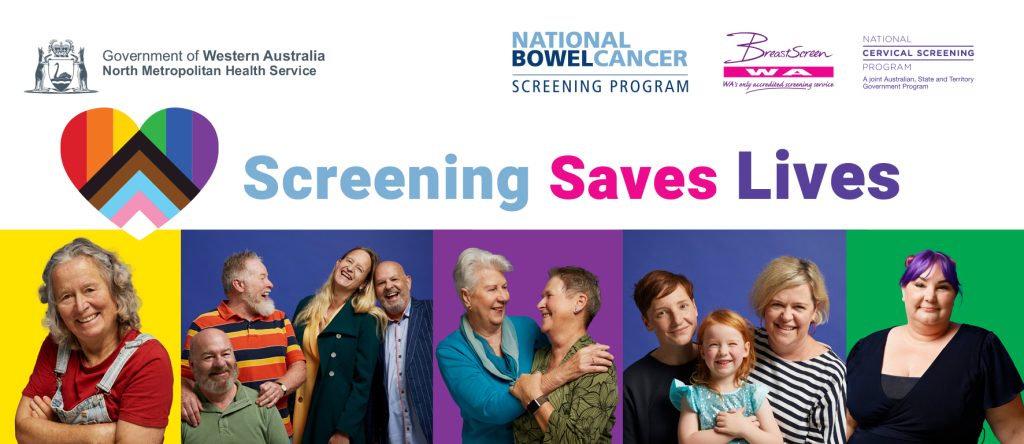A roadmap to reduce your cancer risk
With members of the LGBTQIA+ community having lower cancer screening rates than the general population, a targeted campaign is helping to break down some of the barriers to screening to encourage more people to undertake potentially lifesaving tests.
King Edward Memorial Hospital Liaison GP Dr Sarah Smith said regular cancer screening is extremely important.
“Research shows, sadly, worse health outcomes among the LGBTQIA+ community due to significant barriers to healthcare engagement,” Dr Smith said.
“To increase the rates of screening, the National Bowel Cancer Screening Program, BreastScreen WA and the WA Cervical Cancer Prevention Program have joined forces to create the Screening Saves Lives campaign which aims to break down barriers to cancer screening for the LGBTQIA+ community.

Tips for finding a safer and inclusive clinic for your cancer screening appointments
- Look for clinics displaying inclusive posters and flags
- Find a clinic with inclusive forms that use gender neutral language and provide ample choice for documenting title, pronouns, gender and sexual orientation.
- Ask friends and families for recommendations for health professionals who ask for patient pronouns and use gender neutral language.
The National Bowel Cancer Screening Program sends a free test in the post every two years to people aged between 50 and 70 years.
Just recently, the program expanded and if you are 45 or older you can order a free kit from www.ncsr.gov.au/boweltest or by calling the National Cancer Screening Register Contact Centre on 1800 627 701. The test is easy and quick to use, can be done in the privacy of your own home, and will help in the early detection of bowel cancer.
“Bowel cancer is very preventable, and this simple kit offers the chance to detect it early. It is important that you complete the test and return it when it is your time to screen,” Dr Smith said.
In Australia, many individuals who develop cervical cancer have either never been screened or don’t screen regularly. There are now two cervical screening options available, making it easier for people to be screened.
You can now either take your own sample or have a healthcare provider collect it for you. Both methods are accurate, safe, and effective.
For many, the option to self-collect for cervical screening provides a more comfortable and empowering way to take charge of your health. Discuss with your healthcare provider which cervical screening option is best for your individual circumstances.
BreastScreen WA provides a free, safe and accessible mammogram service to all eligible Western Australians. Having regular screening mammograms is one of the best ways to find breast cancer early to improve outcomes. Talk to your healthcare provider about your personal risk and if breast screening is right for you.
“Book an appointment with a trusted healthcare provider to discuss your cancer screening history and the best options for your individual needs,” Dr Smith said.
If you’re looking for an LGBTQIA+ friendly service or help in finding a queer-friendly GP in your area, contact QLife on 1800 184 527.




